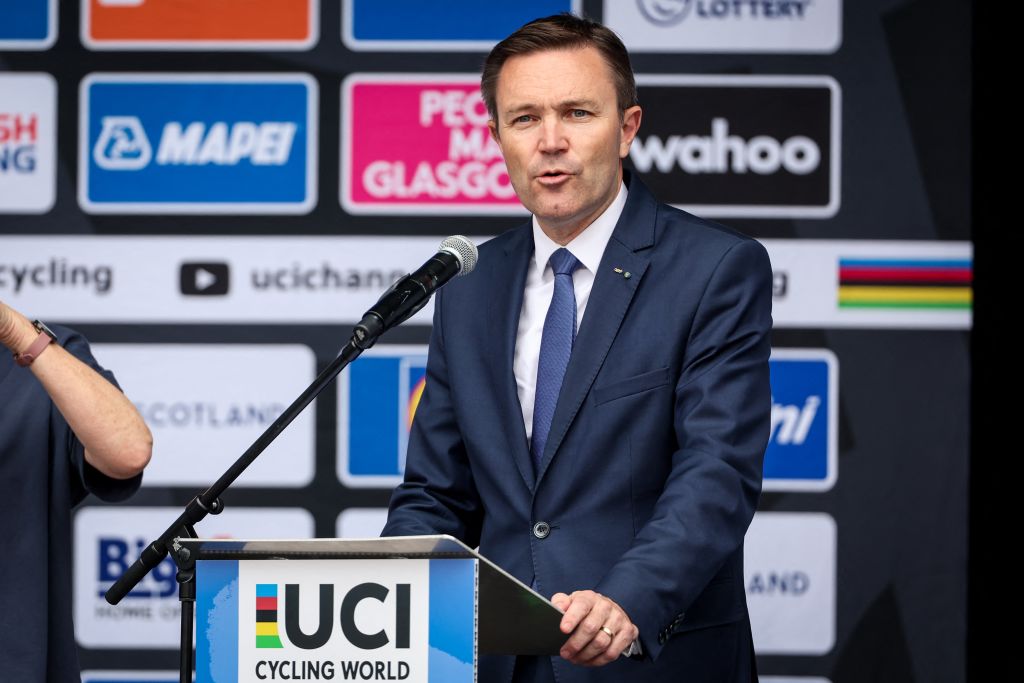UCI president David Lappartient has given the sustainability of professional cycling a four out of 10 rating as he vowed to make the sport greener.
The Frenchman has, in an interview with Cycling Weekly, outlined a series of proposals in order to make the sport more sustainable, including a revamp of the calendar, a switch to electric vehicles, and working with organisers to reduce travel.
He said that “there is no other choice but to change” in the upcoming years, referring to the UCI’s ‘Agenda 2030’, which sets out a plan to make cycling carbon neutral with all stakeholders reducing their emissions by 50%.
“There is no other choice but to change,” Lappartient told Cycling Weekly. “We are not at the level we should be. We are on the right path, but our starting point was not good and there’s a lot of effort to do.
“Our ambition is really high, to get a score of 10, and we’re getting better. We’ve started sharing goals, a vision, but I think we have to develop more, and it has to be a truly common goal for everybody.”
So what has to change, then? Lappartient, who has run the UCI since being elected in 2017, said that the calendar can be reorganised into geographical blocks in order to reduce travel and subsequently reduce carbon emissions.
Teams staying in the same hotel during racing blocks such as the spring and autumn Classics are another idea raised.
“We have to organise the WorldTour calendar in a way that reduces our emissions, and so that we’re not moving from one part of the globe to the other every month,” Lappartient said.
“In the Agenda 2030 booklet, it’s written that we have to reschedule the WorldTour and other calendars. So [starting from January] it goes from Oceania, Asia, the Middle East, Europe, North America and then Asia. By reshaping the calendar, we can help reduce the sport’s carbon footprint.
“Within Europe, we should have different racing slots in different areas where all the team vehicles can stay for an extended period of time, even if the riders don’t. A good example is the Classics in Belgium in the spring, and the Italian Classics in autumn: teams are in the same hotels for three weeks, there are races every few days, and this reduces the carbon footprint.”
He also said that Grand Tours have to change their ways, with long rest day transfers set to be a thing of the past, organisers needing to make the move to electric cars as seen in races such as the Arctic Race of Norway, and rules put in place to prevent distant Grand…
Click Here to Read the Full Original Article at CyclingNews RSS Feed…

